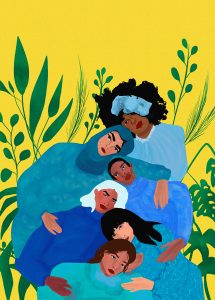Her Story: Promoting Inclusivity and Equity
lundi 22 mars 2021 à 15:17
For over 40 years, millions across the globe have collectively celebrated the achievements, histories, ideas, and contributions of women on March 8 and increasingly, throughout March for Women’s History Month using #HerStory and #BecauseOfHerStory. This year, we wanted to do something special to celebrate this annual event, so we reached out to several members of the Creative Commons Global Network and the broader open community to ask them to share their personal stories, ideas, and insights by responding to five questions. The result is this five-part blog series called, “Her Story.” Throughout this series, we’ll also be highlighting the work of women artists who submitted pieces to Fine Acts’ Reimagining Human Rights challenge.
Our hope is that these conversations will inspire you to reflect on your own stories and ideas. We also hope it will motivate you to think about how you can help make open sharing more inclusive, equitable, and sustainable. Put simply, we want to make sharing better—to do that, we need your help.
In part three of this series, participants responded to the following question: What efforts or actions should be taken by open organizations to ensure the movement is more inclusive?
- Florence Devouard | Co-Lead, Wiki Loves Women; Wikimedian for 19 years; Former Chairwoman, Wikimedia Foundation
Plusieurs initiatives du monde libre travaillent à la mise en place de code de conduite, charte de bonnes pratiques, lutte contre le harcèlement, usage de langage inclusif, respect du genre déclaré, prise en compte des besoins des personnes neuroatypiques ou en situation de handicap lors des évènements présentiels, réflexion sur les modes de représentation au sein des conseils d’administration, délocalisation des évènements depuis l’Europe/Etats-Unis vers d’autres continents, prise en charge des frais de nounous, prise en charge des frais de connexion internet, respect des préférences alimentaires etc.
Il serait bon d’être à l’écoute des démarches engagés par les autres organisations du mouvement libre, éventuellement d’établir un observatoire des bonnes pratiques de chacune d’entre elles (selon les étapes de discussion, pilote, implémentation, retours d’expérience) et multiplier les opportunités d’échanges et de partage de documents.
EN: Several initiatives in the [open movement] are working on the establishment of a code of conduct, a charter of good practices, fight against harassment, use of inclusive language, respect for declared gender, taking into account the needs of neuro-atypical people or people with disabilities during face-to-face events, reflection on modes of representation on boards of directors, relocation of events from Europe / United States to other continents, coverage of nanny fees, coverage of connection fees for the internet, respect for food preferences, etc.
It would be good to follow the steps taken by the other organizations in the open movement to establish an observatory of the good practices (e.g. stages of discussion, piloting, implementation, feedback, etc.) and increase the opportunities for exchange and sharing of documents.
- Hildah Nyakwaka | Community Coordinator, Center for Digital Resilience
Pay people that are doing the hard work of fostering and building open communities outside of the United States and Europe. Without support, they cannot participate as they would like to. Hire black people, folks from the LGBTQI community, from Indigenous communities and honour their efforts. Move out of your comfort zone and find people that are creating a positive impact—and share their stories, introduce them to the powerful networks you have access to; put your allyship where your power and money is. Get rid of the volunteerism industrial complex.
- İlkay Holt | Representative to the CC Global Network Council, CC Turkey
I can think of a long list of actions but overall I believe that supporting multilingualism, welcoming cultural diversity and community-driven governance, as well as openness in workflows, transparency in decisions and utilizing a collaborative approach around shared values could help create a more inclusive environment at the organisational level.
- Irene Soria Guzmán | Representative to the Global Network Council, CC México; feminista; académica y activista de la cultura libre
Creo que la empatía es fundamental. Ir más allá de “incluir” y mejor, crear otros mundos y otras realidades diversas. Que podamos hablar abiertamente y en espacios seguros sobre los problemas que tenemos desde el sur global y otras periferias y márgenes.
EN: I think empathy is essential. Go beyond “include” and move on to create other worlds and other diverse realities. Build safe spaces where we can speak openly about the problems we face in the Global South and in other peripheries and margins.
- Isla Haddow-Flood | Chair and Advancement Lead, Wiki In Africa; CoProject Lead, Wiki Loves Women
Recite the Wikimedia mantra: be bold! Recognise your own biases—both conscious and unconscious. Open up channels of communication for feedback, criticism and constructive suggestions. Don’t just pay lip-service to inclusivity, be it. Find ways to bring people in from the margins. Make sure your values reflect inclusivity and that you and your team live by those values.
- Mariana Valente | Director, InternetLab; Professor, Insper University; 2019-2020 CC Brazil lead
The first step is to recognize the existing power imbalances and take concrete, bold steps to address them. One problem is the defensiveness and protectiveness of the past and how things used to be that causes silence and inaction. I’m not just referring to gender imbalances but to the many inequalities that exist across our organizations and our societies. We need to recognize these and move forward.
The second thing, in a movement like ours that works in so many different layers and levels, is understanding and internalizing that identities are constantly shifting and are contextual. Someone subalternized in certain environments will probably be in situations of privilege when facing others. For example, in international environments, I face discrimination for being a Brazilian woman that is very different from the experiences I have back at home, where besides being a woman, I enjoy many privileges that are related to the racial and class-related local history and context. This also affects my international experiences. Women from other countries and continents might face these issues differently. Because we are a global community, this requires difficult conversations, as well as constant checking and evaluation.
We are, of course, referring to attitudes and practices, but change requires policies too. We can learn from the many experiences out there of organizational policies that have made rights and wrongs in addressing these issues: diversity, effective participation in decision-making, qualified hearing procedures, anti-harassment actions, etc. We know, of course, no rights have ever been granted without struggle—so, we need to organize. It is amazing to see how many women from this community have taken on feminist causes inside the community, have tirelessly addressed this in summits, talks, projects, and everyday actions. Huge thanks to them!
- Primah Kwagala | Executive Director, Women’s Probono Initiative (Uganda)
Consider affirmative action positions in the leadership of the open movement. Let us be deliberate in appointing women to lead specific aspects of the open movement. Women in many aspects will not offer themselves for leadership, let us seek them out and offer them the spaces to lead and offer their works. Let us celebrate them as much as we celebrate the male gender.
 There’s more! Read part one, part two, and part three of our “Her Story” blog series today. Part five will be published soon. Stay tuned!
There’s more! Read part one, part two, and part three of our “Her Story” blog series today. Part five will be published soon. Stay tuned!
The post Her Story: Promoting Inclusivity and Equity appeared first on Creative Commons.
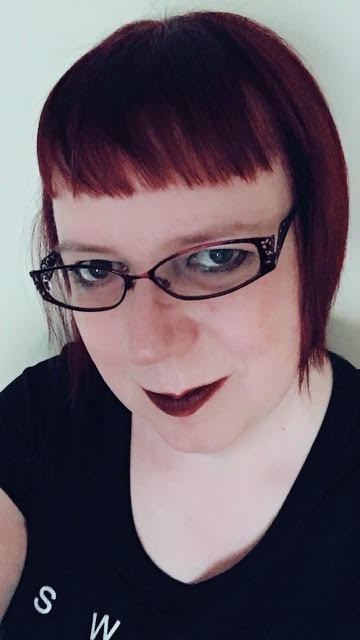
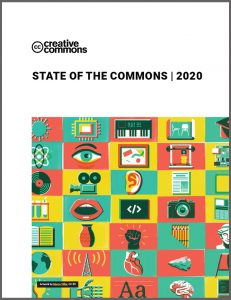
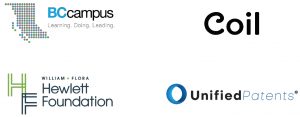
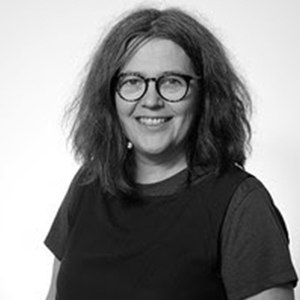 Susanna
Susanna 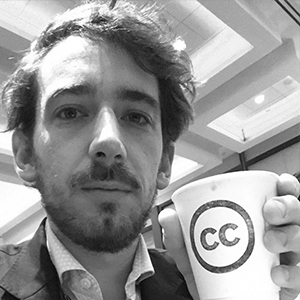 Franco is a long time contributor to the Open Movement ecosystem, working at the Unviersidad Nacional de Córdoba as a Coordinator por Public Innovation, developing open technology to foster civil participation in local governments. As a private lawyer, he has participated in national and international cases representing artists and authors in different industries, such as the film, music or street art industries. Recently, he joined the Fundacion Via Libre as a legal and policy analyst and is currently working on a LACNIC funded project to counteract abusive DMCA content moderation in internet platforms in Latin America. He is the GNC representative for the
Franco is a long time contributor to the Open Movement ecosystem, working at the Unviersidad Nacional de Córdoba as a Coordinator por Public Innovation, developing open technology to foster civil participation in local governments. As a private lawyer, he has participated in national and international cases representing artists and authors in different industries, such as the film, music or street art industries. Recently, he joined the Fundacion Via Libre as a legal and policy analyst and is currently working on a LACNIC funded project to counteract abusive DMCA content moderation in internet platforms in Latin America. He is the GNC representative for the 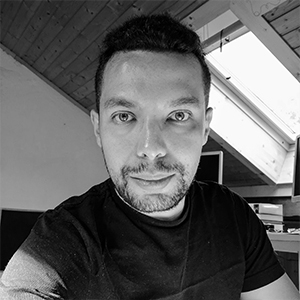 Arturo
Arturo 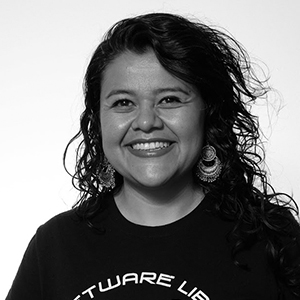 Irene
Irene 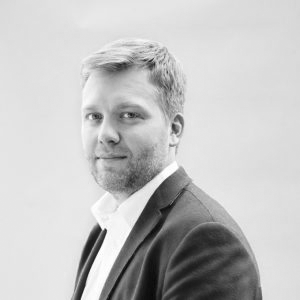 Alek
Alek 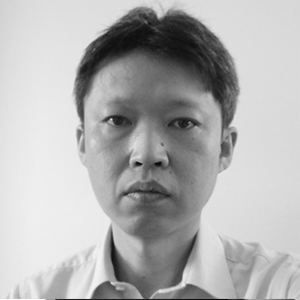 Tomo
Tomo 